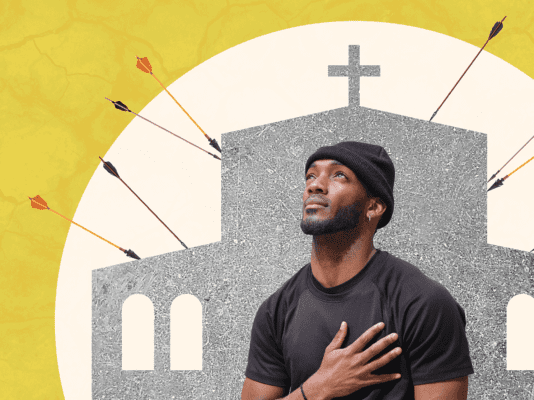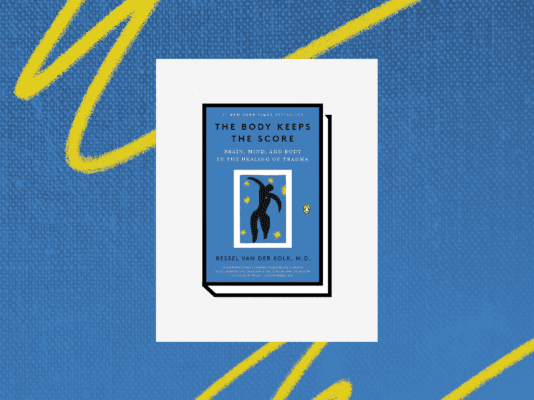Years ago, I preached from Psalm 88. Psalm 88 is a dark psalm with a rather despairing tone. It ends with the psalmist saying that “darkness is his only friend.” I had conversation after conversation with people who told me that the message from Psalm 88 was exactly what they needed to hear. For such a small church, there were dozens of people who felt like the psalmist. They felt overwhelmed by grief and fear. They felt like they were drowning in despair, but they didn’t know that they could turn to God with their trouble. They didn’t even have a vocabulary to communicate their pain. But as one author put it, “God’s Word gave voice to their pain.”
The people in that small church were not unique in their pain and problems. Journal articles in major health publications attest to the fact that we are living through a time in our society where more and more people are wrestling with depression and despair. With the rise of depression and despair in our society, we are witnessing a decline in life expectancy for the first time in decades for the United States. The phrase “deaths of despair” has been coined to describe the role that depression and despair have played in suicide, drug poisoning, and alcoholic liver diseases.
In an attempt to address the pain, people are turning to self-destructive practices that are leading to death. Thus, while the language of Psalm 88 might make some people uncomfortable, the reality is that for many people, the psalm resonates with their inmost feelings that they do not know how to express or deal with without being self-destructive or isolating.
God’s people need to know how to call out to him in their crisis. They need to learn how to lament their situations and circumstances while continuing to live in a broken world. We need to learn how to lament. To help us, I want to draw out four aspects of learning to lament from Psalm 42 that show us how to express our pain, depression, disappointments, despair, fear, and needs to God in a manner that seeks to glorify him while doing good to our soul.
First, when we lament, we should exhibit a desire for God.
Like a deer that pants for water, the psalmist is panting for God (vv. 1-2). He desires God in the midst of his distress. The psalmist compares his need for God to his need for water. He concludes by asking the question, “When can I go and meet with God?” The idea of “meeting with God” in these particular verses means something like “see God face to face.”
Someone might ask, “Why should we desire God in the midst of our crisis?” Those who know God understand why we should desire God in the midst of our crisis. It is because God alone is able to deliver us. When everything around us is falling apart, God alone is the Rock on which we can stand. He is a sure and steady anchor in the midst of the storm.
Admittedly, it may take years of maturing in our understanding of the character of God to fully appreciate the psalmist’s desire for God in this midst of crisis. It will take time for us to get to know God better and see him as the trustworthy Father who cares for us in our times of affliction. Yet, the better we know God, the more we will trust him. We will recognize that he alone is able to meet us in our need and to care for us. And as we do, when we lament, we will exhibit a desire for God himself to be near to us.
Second, when we lament, we should maintain a disposition of humility.
Humility acknowledges our desperate need for God to deliver us. Humility is an implication of our prayer. For, if we were not humble, we would not pray, because we tend to pray when we recognize that we need God. If you have ever wondered about how you could grow to pray with greater regularity and affection, then you simply need to recognize how desperately you need God. And when you recognize your desperate need, you will approach God in prayer with a disposition of humility.
Verses 3-4 and 6-10 of Psalm 42 gives us a glimpse of the humility and dependence that the psalmists possess before his God. He recalls the former days when he used to gather with God’s people in the sanctuary, offer sacrifices, and hear the promises of God’s Word. Yet, the psalmist also acknowledges that he is far from that sanctuary. He longs for the day he is able to return. He speaks of the need for God to direct love toward him during the day and his song toward him at night. Then, the psalmist confesses that he responds to God’s mercy toward him, he prays back to God, whom he describes as the “God of my life.” This man is humbly dependent on God, day and night. And we also should maintain this disposition of humble need before God when we lament and ask him to move for us.
Third, when we lament, we should disclose our feelings with honesty.
While the psalmist comes before God with a desire to see him and a disposition of humble dependence, he also comes to God with honesty about how he is feeling. Throughout the whole passage, the psalmist is honest with God. He feels as though “tears have been his food day and night.” He is weary of being mocked by those around him who ask, “Where is your God?” The psalmist confesses that “my soul is downcast and disturbed within me.” At times, the psalmist feels as though he is drowning in grief, pain, discouragement, and despair.
Have you ever felt like that? Like you were treading water in a pool of depression and despair, and that you were starting to lose strength and slip under the water. The psalmist describes it as “the deep calling to deep” in the midst of a “roaring waterfall” with “waves and breakers sweeping over him.”
When everything around us is falling apart, God alone is the Rock on which we can stand. He is a sure and steady anchor in the midst of the storm.
The psalmist even asks the “God, His Rock,” if “He has forgotten.” Have you ever felt like God had forgotten you? The psalmist seems to have felt this feeling in his soul. He asks the Lord why he must “go on mourning under the oppression of his enemy.” As we watch the psalmist wrestling with his own emotions before God, we can almost hear him asking the same question that his critics were asking him, “Where is your God?”
As we learn to lament, we must recognize that honesty before God is an invaluable component. Yes, God knows all things. He knows our feelings. He knows them better than we do. Therefore, there is no need to act like those feelings are not there and be hypocritical before God. We must not treat him the way that we often treat others when it comes to our feelings. Typically, when people ask us, “How are you doing?”, regardless of how we are really doing, we will say something like, “Doing well.” But when we come to God in humble prayer to ask him to meet us in our need, it is as if God is asking us, “How are you doing?” We must honestly disclose our feelings before him, even when we recognize that they are not always right about our situations.
Honesty does not mean that we are justified in feeling the way that we feel about our situations. In other words, while we might tell God, “I’m really upset, mad, even angry with you because of what has happened to me,” that does not mean that we are justified in feeling that way. Instead, it gives us an opportunity to ask God to change our hearts and our affections toward him. We might admit that we are angry, but we do not want to stay angry. We should desire healing and restoration. We, like the psalmist, “desire to see the face of God.”
Finally, when we lament, we should declare our determination to hope.
While the psalmist speaks openly with God about his feelings, he also declares his determination to hope in God. He fully believes that while things are not great at the moment, because God is great, restoration is always right around the corner, even if it doesn’t always fit our timelines. When the psalmist confessed the downcast and disturbed feelings within himself, he also habitually determined to “put hope in God, my savior and my God.” Why? Because he knew the future belonged to God and that he would make all things right in his timing. This is why the psalmist was able to say, “I will yet praise Him.”
As Christians, we know that this hope must be rooted in Christ. Our hope in life and in death rest in Christ’s life, death, and resurrection. We can have hope in our despair, depression, weakness, struggle, and fear, not because we can overcome these things in our own strength, but because Jesus has overcome this world and is returning for us with the fullness of his redemption coming with him. Jesus makes this clear in John 16:33 when he tells his disciples, “I have told you these things, so that in me you may have peace. In this world you will have trouble. But take heart! I have overcome this world.”
What wonderful news. And even though trouble will come in this world, this world will not win. Even as the tears fall, maybe even in this moment, those who hope in God through Jesus Christ “will yet praise him.” As deep as the sorrow and pain may be, if you place your hope in Christ, one day, all the sorrow and pain will be turned to rejoicing. Joy is coming.
Until the day that the joy of God in Christ manifests itself fully, we will weep. We will mourn. We will struggle with pain. We will have sorrow. And while we experience these things, God has called us to humbly seek him, honestly speak to him, and place our hope in him.










